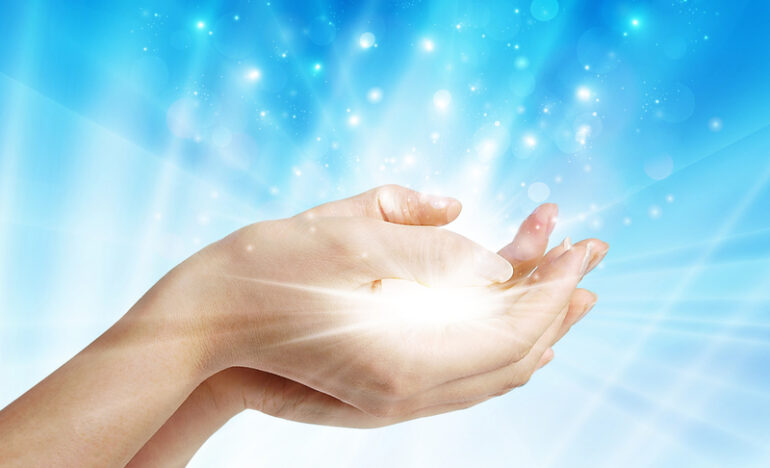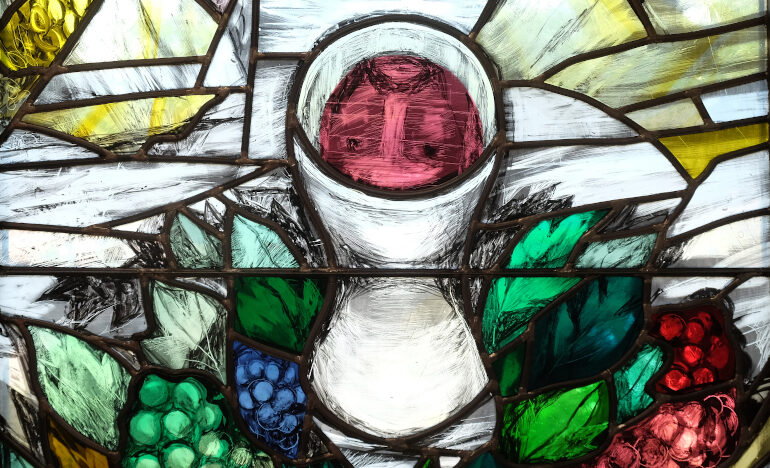The God of Jewish Spirituality

By Kathy Keary
Our full series on Contemplative Life is here.
Our series on Judaism and Contemplation is here.
In our last article, we explored Shekhinah, the Indwelling Presence of God, often considered the feminine aspect of the Divine. We will now focus on other characteristics of the Sacred One found in Jewish spirituality.
Even though Abraham, the patriarch of Judaism, Christianity, and Islam, existed in a culture where many gods were worshipped, he firmly held within himself a yearning for what Mirabai Starr, an interspiritual teacher of Jewish ancestry, describes as a “connection with the heart of the universe, for a living relationship with the Ultimate Reality.” She comments that Abraham “took a radical stand in asserting the existence of one unutterably holy, all-loving God, a being whose omniscience, omnipotence, and omnipresence are equal to His unconditional compassion and perfect justice.” The relationship between God and the Israelites was cemented when Yahweh offered a covenant to Abraham: “I will be your God and you will be My people” (Starr, 14).
Jews believe that the name of God is too holy to pronounce so is often represented by four letters, YHVH, generally translated as “I am that I am,” the words God used when introducing himself to Moses from the burning bush. Hebrew scholars interpret this to mean: “I am that which is, was, and shall be.” Starr explains the significance of this interpretation: “The Holy One is a dynamic, ever-present reality rather than a remote Deity. And it [God] requires an active relationship. We are invited not only to ‘listen’ but to engage” (Starr, 16).
The Hebrew patriarchs, matriarchs, and prophets all embraced the contemplative stance conveyed in Psalm 46, “Be still and know that I am God.” They cherished times of silence when they listened for the voice of the Divine in the depths of their soul. You may recall in the Old Testament that Moses withdrew from the people for forty nights encountering the Sacred One on Mount Sinai. Starr describes how we can incorporate this same spirituality into our daily lives: “To live a contemplative life means to consciously put aside the thousand demands of the world and offer ourselves the gift of being in the present moment, alert to the signs of the sacred that are breaking through everywhere” (Starr, 180).
In the book, Out of Darkness Into Light, the co-author, Kathleen Schmitt Elias, eloquently speaks of the characteristics of God as shared by the mystics of the three Abrahamic faiths:
This is a God who created the universe in such a way that all of humanity is surrounded by and infused with divinity, a God who dwells in each human heart and relies on each one of us to complete the work of creation. This is a God who calls us to our higher selves, who invites us to conscious union with the Divine “I am as I am,” says this God, and what that God will be in each moment is up to you and me (Elias, 4).
The Jewish people possess a sense of responsibility to partner with the Creator as evidenced by an endearing story that emerged from Hasidic Judaism, a mystical Jewish movement. The teacher posed a question to his students: “Where does God exist?” Convinced that they were correct, the students blurted out: “God is everywhere.” The teacher wisely corrected them: “God exists only where we humans let God in” (Elias, 43).
Note: Never miss an article published on the Renewal Center website: Sign up to receive our newsletters.
Judaism does teach, however, that God is everywhere and is there for us in times of darkness. As is written in the Book of Deuteronomy: “If you search there, you will find the Eternal your God, if only you seek with all your heart and soul…for the Eternal your God is a compassionate God, who will not fail you nor let you perish” (4:29 and 31).
Jewish people believe that God is omnipotent, all powerful. I am sure you have heard people question how a loving God could allow all the ills of the world to occur. Saying that God is all powerful does not mean that God causes everything that happens. Elias comments that “in Jewish spirituality God is not running that type of show.” Often human activity affects natural events as we see with the disastrous consequences resulting from the use of nuclear weapons and the devastating effects of global warming (Elias, 44).
Because humankind was created with free will, evil has entered the landscape. Elias explains:
God ceded power over our individual choices and behaviors, and it is up to us to learn how to transform our ego-driven tendencies so that we manifest our higher nature, the love and compassion of our Creator. To the extent that we fail in this task, the whole world suffers – and that is something we cannot blame on God.
I will close with an inspiring metaphor told by a sixteenth century Jewish mystic, Isaac Luria. God had to contract itself to make space for creation to occur. The Divine sent a stream of Creative Light into the fragile vessel of empty space. The Light was so intense that the vessel exploded scattering The Light everywhere. It is up to us to gather up those sparks and reunite them with the Source. Every time we say “yes” to God, we gather up a holy spark and increase God’s presence in our individual lives and in the world (Elias, 45). I love that analogy.
Stay tuned. Next week we will continue our exploration of Jewish spirituality.
References
Rahman, Jamal; Elias, Kathleen Schmitt; and Redding, Ann Holmes. Out of Darkness Into Light: Spiritual Guidance in the Quran, with Reflections from Christian and Jewish Sources. Harrisburg, New York: Morehouse Publishing, 2009.
Starr, Mirabai. God of Love, A guide to the Heart of Judaism, Christianity and Islam. Rhinebeck, New York: Monkfish Book Publishing Company, 2012.
Photo 135400698 / Holy Spark © Alexandra Barbu | Dreamstime.com
Kathy Keary, spiritual director, holds a bachelor’s degree in Education, a master’s Degree in Theological Studies, and completed Sophia Center’s Souljourners Program, an intense study of spirituality and spiritual direction. Kathy believes that the Divine is present and active in all of life and encourages others to be awakened to the God in all including the divine within. She enjoys accompanying others on their journey to wholeness discovering the person they were created to be.
We’d Like to Hear from You!
We’d like to know what you think about this article. Send us a comment using the form below. Do you have a suggestion? Is there something you want to learn more about? Send us a note.
Related

Argue, Debate, or Be Constructive?
An Assembling God’s Puzzle video
By Fr. Garry Richmeier
It seems to be part of our DNA to sort everything in life into two categories — right or wrong, good or bad. Of course, we are always on the “right” side and to demonstrate our “rightness” we demonize the other side and problems ensue. How can we break the cycle?

6th Reflection on Eucharistic Prayers: We become whom we receive
By Fr. Ron Will, CPPS
I hope that my reflections make you more attentive to the Eucharistic Prayer at the next Mass you attend. When you really listen to the readings and the prayers, the pieces of the puzzle of the Mass come together and you see the incredible vision God has for us.
